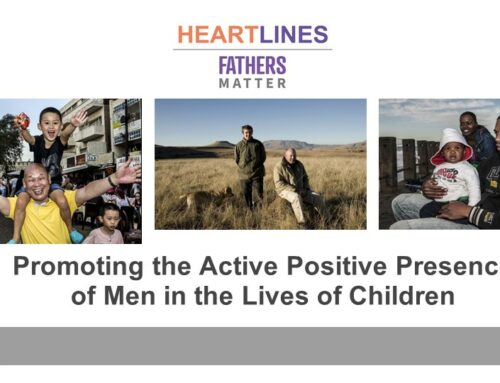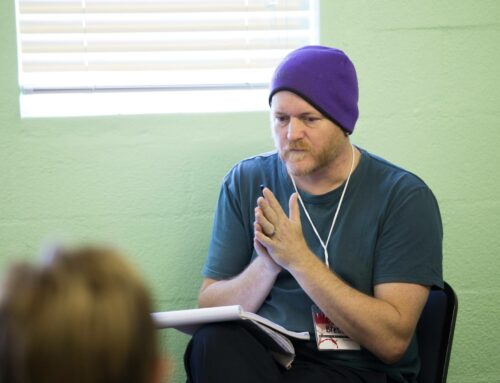Day Zero continues its menacing approach like a menacing Sith Lord approaching with somber orchestral accompaniment in the background…
Cape Town readies itself by desperately grabbing hold of any water-catching, water-containing or water-producing containers it can find…
And we stand at a dry and dusty crossroads where both paths seem to lead away from any kind of aquatic-heavy future. There has already been a fair amount of evidence to suggest that both options are the paths various Capetonians might travel going forwards. But the one that grabs me looks something like this:
One redemptive idea is that day zero offers a rare opportunity for a different experience of community. A moment where the default inflation of the Cape Town’s privileged may be humbled by standing in a queue along with other members of the community, irrespective of “class” or social status. Whilst this is probably not strictly speaking true – because the privileged will no doubt find alternate and more privileged solutions than queuing up for their water – it does represent an opportunity, both symbolic and literal, for a renewed sense of community, even, dare I say it – for an experience of ubuntu.
That paragraph comes from a fascinating article i read today by a man called Stephen Farah and it may really require you to bite your tongue and read through right til the end as there are some ideas you might struggle a bit to process. But there is much gold in there as well. That really is the dream though, and the hope of this post to get us preparing our minds and actions in that direction. My deep hope and desire is that this water crisis gives Cape Town [a province with a bad reputation for racism and deep-seated prejudice] an opportunity to face itself in the mirror and say, “We want to collectively do better, not just now, but from now on!”
i strongly encourage you to read the whole article. The perspective he offers is similar in some ways to that which i spoke specifically to the christian community who seemed to feel like praying for rain was the only thing they needed to do for rain to come… whereas even from a biblical approach the scripture is very clear that we need to put our house in order before we can expect God to miraculously act with some kind of blessing. Stephen captures that idea in a different way using metaphor:
Read as a symbolic communication, four, arguably convergent, themes emerged in relating to the drought and its precipitative water crisis.
The drought symbolises a dryness in the community, an absence of feeling, flow, connectedness and life. In psychoanalytic terms: a lack of relatedness, interpersonal dynamics and a splitting.
It also speaks of hubris, inflation, elitism, privilege, entitlement, solipsism, narrow mindedness and a disconnectedness from the country, continent and larger African community, where scarcity of water supply is commonplace. In psychoanalytic terms: a state of inflated and now pathological narcissism.
It speaks of a lack of honesty, a failure to deal with contextualised reality, misinformation, a lack of: foresight, leadership, integrity and authenticity. In psychological terms: a state of unconsciousness.
An unwillingness to take personal responsibility and a blaming of others for the crisis. The community blaming the government: local and national. The government shifting responsibility onto the community and blaming them. The local government blaming the national government for lack of support and resources, the national government blaming the local government for lack of planning. [The Rainmaker and the Dream of Drought]
While some people are posing questions about the elderly and the vulnerable when it comes to water collection, others are clearing off shelves ruthlessly in supermarkets; while some [like my dad and his friend] are building structures to accommodate tanks [which they are sourcing] for their neighbours and others [like my friend Dave] are tirelessly heading up groups like Watershedding Western Cape on Facebook and starting websites to share information and helpful links, others are pushing the limits of what you are allowed to collect at the spring water points; many people [half of the province if the stories are to be believed] are not doing very much, if anything, at all in terms of significantly changing their lives to save water and many sit wide-eyed at the cheering and congratulating going on for those who have reduced water to levels still above those that they encounter every day of their lives as their normal. The Good, The Bad, and The Puddly. Yes, i went there. But it is all happening and so the question really becomes, which wolf do you feed the most?
We are facing a terrible crisis. And it does seem like Day Zero is a reality we are going to need to face. But that is not the biggest crisis Cape Town faces right now. A lack of really seeing each other or of bridge-building, an acceptance of the fact that some can live in absolutely lavish over-the-top wealth-dripping conditions while others live in a sanitation-bereft hell of a context, a refusal to interrogate attitudes, privilege or entitlement and a province that is known to be particularly unwelcome to people who do not have white skin. We certainly cannot expect God to act if we refuse to confess and repent and acknowledge and start changing our ways, but can we hope people will either?
i will let Stephen have the almost finally last word on this [but seriously, go and read the whole post]
Such a fairy-tale conclusion seems improbable in the midst of this much-more-nightmarish-than-fairy-tale-like dream of the drought. However, I suggest, that irrespective of how long it takes for the rains to return to the Cape, we, as a community, would be well served by breaking the drought that currently plagues the soul of this community.
The drought of feeling.
The drought of relatedness.
The drought of honesty.
The drought of responsibility.
The drought that is evident every time you drive on our roads, open the newspaper (or whatever the contemporary digital equivalent is properly called), read another finger pointing post on social media or try and engage those “woke-folk” beyond the shadow cast by the mountain.
This is the hugest opportunity for all of us to stand and peer deeply into the mirror and ask the difficult questions and seek solutions that will last longer than the water crisis and start shifting the narrative of Cape Town to make us more loving and friendly and welcoming and truly diverse.
What’s it going to be?









Leave a Reply